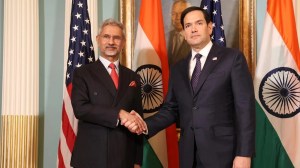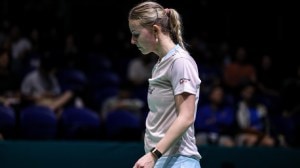Schools for Indians
A found post-Independence aspiration has been to evolve an indigenous systemof education. In 1947, there was a body of educationists, teac...

A found post-Independence aspiration has been to evolve an indigenous systemof education. In 1947, there was a body of educationists, teachers andteacher-educators who believed that only a system of education firmly rootedin Indian soil could solve the problem of illiteracy. They had givenconsiderable thought to the concept of basic education. We had theeducational thoughts and experiences of Gijubhai Vadheka, Swami Vivekanand,Sri Aurobindo, Gandhiji and his associates, Rabindranath Tagore andothers.
Aurobindo wrote in 1910: 8220;The first principle of true teaching is thatnothing can be taught8221;. This was a restatement of the ancient Indianpremise that every individual soul is divine and the entire learning resideswithin the learner. The teacher or the guru can only help in unfolding thetreasures within.
The reader may have, by now, concluded that the author is a conservativeagent of saffronisation. These days, anyone who refers to Indian culture,Indian thoughts or Indian contribution to history and world civilisation isimmediately identified by certain vested interests as an individual with ahidden agenda. They rarely care to listen to the other viewpoints or examinethese rationally and logically.
The number of such persons is not very large. These are probably those whofeel threatened by the mere use of words like culture8217;, religion8217; andheritage.8217; Their ill-founded frustrations, anguish and apprehensions aremanifested in attacks on individuals, institutions and, of course, thegovernment.
During the last five decades, India has developed institutions with thehighest level of professionalism and with outputs of standards comparable tothose of similar institutions abroad. Our initiatives in science andagriculture as well as technological advances have been appreciated all overthe world. This is a miracle for a country which has been independent onlyfor a short period and is still perceived as a poor country. It is also atribute to the over 50 lakh teachers working in almost impossibleconditions, yet preparing products not only with the highest level oflearning attainments but also individuals with values and commitment to workfor the country.
Howsoever small be the number and percentage of committed individuals, thesehave to be trusted, respected and encouraged by the nation as a whole.These are times when neglected languages and vulnerable cultures arevanishing from the surface of the earth under the onslaught of Westerninfluences. This impact, a consequence of globalisation and informationtechnology advances, is reaching the home and hearth of the majority in theEast. Countries like China and Japan had the foresight to develop their ownsystems of education and inculcate a sense of pr-ide in their ownlanguages.
No area of research or le-arning even at the highest level was closed totheir own languages. India has missed out on this score. We also dithered inbringing in our own system of education.
It is in the context of all this that the curriculum of school education isunder scrutiny. Professionally speaking, the curriculum framework of schooleducation needs to be re-examined after every five years, if not earlier. Infuture this interval has to be reduced. The National Council of EducationalResearch and Training has begun the process of curriculum renewal after agap of 12 years. Strangely, the NCERT is being attacked for initiating theprocess at the instance of vested interests in the government8217;.
The discussion document on curriculum framework prepared by the NCERT isbeing debated throughout the country. The document raises certain relevantissues pertaining to school education and seeks the views of all theconcerned on these issues. It clearly states that what the NCERT iscirculating is not the curriculum framework but only a discussiondocument.
What are the main issues of school education today? It is globally acceptedthat education must lead to a cohesive society. Access to quality educationis the birthright of every child and it is the responsibility of the nationto include in this category children with special needs and those ofdisadvantaged groups as well. Education of the girl child in India deservesparticular attention. These are the issues raised in the document.
It also seeks views on strengthening national id-entity and preservingcultural heritage. Should not our children learn about India8217;s contributionsto the world culture, science and technology, and be proud of them? Shouldthey not be prepared to celebrate the diversities social, cultural, ethnicand geographical of the nation? Related is the issue of integratingindigenous thinking with the process of learning to make it morecomprehensive and to neutralise its alien character.
The new curriculum must respond to the implications of globalisation andprepare the individuals to meet the challenge of information andcommunication technologies in a system with insufficient resources. The useof information technology has to be viewed and pursued with innovativeapproaches and strategies.
Value inculcation and development are issues which no system of educationcan ignore at this juncture of human history. Our Constitution lays downconstitutional values which are to be internalised by every young person andevery citizen. Linking education to life skills and relating it to the worldof work become significant components of the education policy and thecurriculum framework of school education.
The increasing curriculum load, on the other hand, is causing concern amongnot only children but also the parents and the communities. The documentraises this issue forcefully and examines it in the context of existingpractices of examination and evaluation pattern.
Children imparted pre-school education in metropolitan cities suffer much asthey are made to read and write at the tender age of four and five yearswhich is academically undesirable. At the primary stage itself, privateschools impose on the children an overload of books, workbooks, andsupplementary reading materials in order to score over the other sisterinstitutions. In the process, the recommendations of the NCERT areforgotten, even while it is blamed for the overloading.
This does not mean that the NCERT should not regularly review itsrecommendations made in the earlier curriculum framework and also thetextbooks it prepares. In a spirit of professionalism and willingness torespond to the stresses and strains being faced by the young children, theNCERT has initiated the debate on curriculum renewal including theexamination pattern. The issue of marks versus grades has been brought intothe focus of public discussion. Even if a single child of tender age commitssuicide because of low marks in examinations, the entire nation should situp and explore alternative strategies.
School education needs revamping and revitalisation in the light of theissues raised by the NCERT. For, the existing system was not designed toprepare students for life-long learning and a role in a knowledge society.
The writer is Director, NCERT
- 01
- 02
- 03
- 04
- 05































